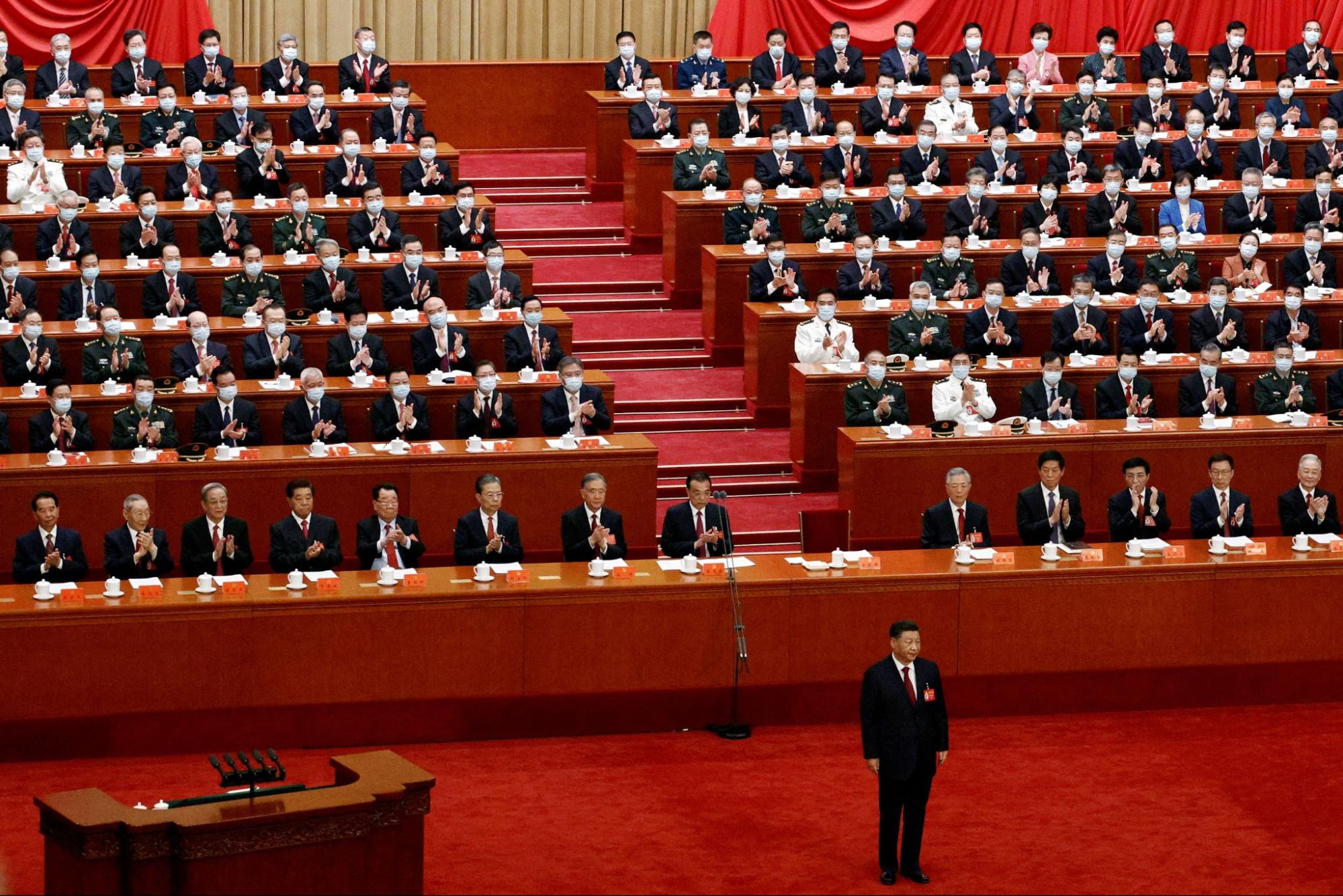Get ready for a less stable and less friendly China
What does it mean when Xi Jinping tells China and the world that he is far more focused on security than on the struggling economy? Dexter Tiff Roberts, author of "The Myth of Chinese Capitalism," is not optimistic.

In his almost two-hour-long address opening the 20th Party Congress on October 16, China’s leader Xí Jìnpíng 习近平 made a nail-biting 91 references to “security” while mentioning “economy” just 60 times. That’s way up from the 55 times he brought up security in his speech to the last Party Congress five years ago. And while the number of references to “market” and “reform” made in a Congress speech were at their lowest this time since the 1980s, “battle” was mentioned 46 times.
This emphasis on combating vulnerability clearly reflects Xi and other senior party members’ belief that China is facing unprecedented challenges, both at home and from abroad. Those emanating from within include a destabilizing reliance on debt and investment to drive growth, an aging population that needs to be supported by a shrinking working age population, growing inequality, and soaring youth unemployment, now officially at about 20%. Youth, of course, have long been the source of protest against government failings in China, from the May Fourth Movement of 1919 to Tiananmen Square in 1989.
Overseas challenges? This is what Xi and others regularly refer to as “hostile foreign forces” meddling in Hong Kong, Taiwan, and Xinjiang, as well as the more real threat, the people who live in those places, the majority of which no longer or never saw themselves as Chinese nor want to be part of China. In the category of existential threat: the ongoing technological battle with the U.S. which threatens China’s development and future prosperity, as well as the real potential for future military conflict with the U.S. The former just got a lot more serious with the Biden Administration’s imposition of sweeping new sanctions that could badly hurt Chinese technology companies, leading to the Ministry of Information Technology convening emergency meetings with chip companies.
What now appears a fast-growing obsession with security is hardly new, of course. That’s what was behind the sweeping crackdown over the last couple years on China’s biggest internet technology companies and the billionaire entrepreneurs who created them. Concern about data security, for example, led to the swift regulatory crackdown on Didi Global just after its NYSE debut last year, which eventually forced it to delist in June.
Also a concern of Xi and other top leaders: the degree to which some of China’s biggest private companies became an integral part of people’s lives, potentially even rivaling the Party, while challenging state-owned companies at the same time. That unacceptable fact, along with founder Jack Ma’s brashness, convinced Beijing to block Ant Financial from completing its planned $37 billion listing in New York in November 2020. And with these worries still strong today, expect the crackdown on Big Tech to be renewed at some point post-Party Congress.
Even the crackdown last year on private tutoring which devastated an industry once worth many billions of dollars was related to security concerns. At least in Xi’s mind, it was unacceptable to allow private companies like TAL Education or New Oriental English, which laid off 60,000 workers after the regulatory assault, to have such a large role in educating China’s youth. “Any sector that has the potential to change how people think or how society works, resists the Party’s comprehensive control, or takes too big a portion of the country’s workforce/investment will find itself in the regulator’s way,” wrote Xibai Xu, a researcher on Chinese civil society, earlier this year. (Much to Beijing’s chagrin, its assault on tech companies has played a large part in the youth unemployment crisis of today.)
The focus on tamping down all potential sources of instability also explains Beijing’s decision to rein in the debt-laden property industry even as it has hurt the economy — and why it will continue clamping down on this all-important sector for the long term. But it will continue to be a delicate balancing act for China’s regulators: on the one hand they realize that an economy-wide debt level that could reach 275% of GDP this year is not sustainable; on the other, a too precipitous drop in real estate values risks angering the 90% of urban Chinese who own apartments, and their discontent in turn could become a security risk for the Party.
The many who continue to predict real progress on reforming the household registration or hùkǒu 户口 system, not just in select cities, but throughout China, will likely be disappointed, just as they have been continually since 2013. That’s a problem, as household registration reform is essential for China’s transition to a more domestic consumption-driven economy. But restrictions on allowing people to leave the countryside and settle wherever they like in China’s cities have always been seen as necessary for public security, with migrants often unfairly blamed for rising crime rates. “It comes down to a question of loosening control. In order to do this, they need to be hands off a little bit. They need to stop thinking or acting as if they can decide where everyone lives,” I said in an interview in 2020.
This emphasis on security will not help but rather hurt an economy that is already struggling. Meanwhile, a weak economy and stagnating incomes will force the Party that has long based much of its legitimacy on guaranteeing rising living standards for the Chinese people to find other ways to bolster public support. Top level pronouncements that call for creating a more equal society, as with last year’s Common Prosperity push and more recently by Xi in his Party Congress speech, will continue, even if in reality there are few effective policies to match the official rhetoric. More scarily, existing feelings of nationalism among the Chinese public will be encouraged, or even drummed up by Beijing as a diversionary tactic, further complicating any peaceful resolution of China’s growing number of disputes with Taiwan, the U.S., and other countries.
Unfortunately, a China that prioritizes countering security threats rather than ensuring economic growth and development is sure to be a less stable and less friendly place.






